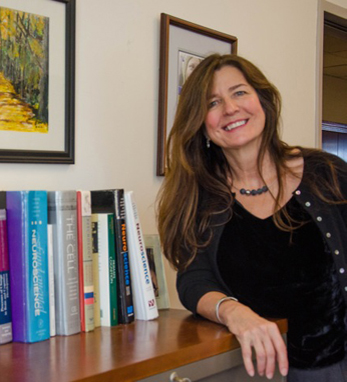
BJ Casey
Dr. Casey is the Sackler Professor of Developmental Psychobiology and Director of the Sacker Institute at Weill Cornell Medical College in New York City where she holds appointments in the Departments of Psychiatry and Neuroscience and an adjunct appointment at the Rockefeller University. Casey is a world leader in human neuroimaging and its use in typical and atypical development. She skillfully uses brain imaging to uniquely examine developmental transitions across the life span, especially during the period of adolescence. Her studies have begun to inform when and how to target treatments to the individual based on age and genetic profile (i.e., precision medicine). Her discoveries have been highlighted by NPR, PBS, The New York Times, The Wall Street Journal, and National Geographic and have implications for juvenile justice and mental health policy reform.
Dr. Casey has served on several advisory boards including the NIMH Board of Scientific Counselors and NIMH Council, the Scientific Advisory Board for NARSAD, the Advisory Board for the Human Connectome Project- Life Span Study. She has been asked to present her work on the adolescent brain to congressional staff on Capitol Hill, to the Washington State Supreme Court, and to federal judges around the country. She is the recipient of numerous awards including an honorary doctorate from Utrecht University in the Netherlands and author of nearly 200 publications. Dr. Casey is someone who takes the training of the next generation of scientists as seriously as her own research, for which she is passionate.
Speaking to Irish America of her Irish heritage she said, “I am third generation Irish. My great-grandfather Bob Casey immigrated to North Carolina from Northern Ireland. I grew up on a small farm that originated out of lots of land distributed among his five children and then passed onto their children. Although I was the first across all three generations to obtain an advanced degree, it was my time on the Casey farm that taught me a love for scientific experimentation (what soil, fertilizer, irrigation led to the best crop) and perseverance (long hours of hard work which may explain why I still rise at 4 a.m. each morning to get my work done). I think the perseverance (and humor) of the Irish have been key in surviving life’s long roller coaster ride as well as the ups and downs of science. At the Sackler Institute that I direct at Weill Cornell Medical College of Cornell University we have a motto that I attribute to my Irish heritage. That is to take our science more seriously than ourselves. This motto underscores the importance of being loyal to the data as we test, rather than prove, our hypotheses.”
